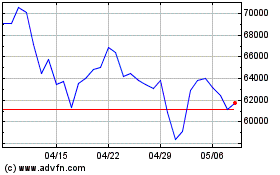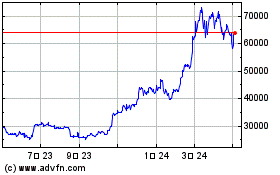
What will 2019 bring for industries such
as AI, fintech, blockchain and crypto?
This year has been marked with
both significant advances in technology within the financial
sector, but also widespread uncertainty due to a number of
political factors including Brexit and the U.S. midterm elections.
Whilst the political environment the financial sector will face
next year remains uncertain, industry insiders have given us their
forecasts for what is to come in terms of innovations within the
sector, and how security and marketing providers will be keeping up
with the changes in the market over the next 12 months.
Blockchain
Blockchain technology is set to enter a new era in 2019,
with many industry experts expecting the technology to be more
widely adopted by mainstream companies, charities and financial
organizations. There are promising technological advances in other
sectors that will allow blockchain to play a more prominent role in
everyday life.
I believe that in 2019 we will begin to witness more
acceptance of blockchain based financial offerings. I estimate that
more and more strong projects will position themselves as a
‘foot-in-the-door’ option for traditional investors, making
investing easier than ever before, but in an above board and
legally compliant manner.” - Frank Wagner, Co-founder and
CEO of https://invao.org/" href="https://invao.org/"
rel="nofollow noopener noreferrer"
target="_blank">INVAO
We’re dealing with extremely futuristic propositions here
and there is work to do. We must strive to meet industry
challenges, such as the lack of formal blockchain education and the
need to keep attracting top talent into the industry. Most
importantly, however, the blockchain industry needs to continue
driving the technology’s research and development and share their
cumulative knowledge through a strong, global open-source
development culture. I believe the disruption this technology will
bring won’t be fully realized over the course of just one year.” -
Max Kordek, CEO and Co-Founder of https://lisk.io/"
href="https://lisk.io/" rel="nofollow noopener noreferrer"
target="_blank">Lisk
I expect a level of maturation within the blockchain space
in 2019, with sustainable blockchain projects on the rise. In the
coming year, I envision more steady progress as dedicated teams
continue their tireless efforts to deliver exciting projects that
disrupt stagnant systems, built to address a range of
in-efficiencies across a variety of sectors.” Nick Cowan,
CEO of the https://gbx.gi" href="https://gbx.gi" rel="nofollow
noopener noreferrer" target="_blank">Gibraltar Blockchain
Exchange
The two biggest areas we’re seeing interest from
enterprises in applying blockchain are finance and supply chain.
We’re already seeing strong progress there in the form of
Hyperledger, Ethereum Enterprise Alliance, and Corda. It can be
expected that in 2019, corporations will invest additional time and
resources in determining how to optimize portions of their
businesses through the decentralization and transparency that
blockchain offers.” - Luka Horvat, Head of the
Developer Vertical at https://www.toptal.com"
href="https://www.toptal.com" rel="nofollow noopener noreferrer"
target="_blank">Toptal and Blockchain
Engineer
Artificial Intelligence
Progress in the Artificial Intelligence sector is set to
transgress the industry, with advancements being used in Blockchain
and in cyber security amongst other areas. Companies are set to use
AI to enhance customer experience and potentially reduce running
costs in certain areas of their operations.
Throughout 2019, we will continue to see an increased use
of AI and machine learning to improve customer experiences, whether
it is the use of enhanced chatbots to facilitate quicker client
assistance, or the use of imaging recognition software to provide
hyper-targeted marketing based on age, sex, and even temperament”.
- Brent Jaciow, Head of Blockchain Affairs at
https://utopiamusic.com" href="https://utopiamusic.com"
rel="nofollow noopener noreferrer" target="_blank">Utopia
Music
Use of AI is going to increase in 2019. Among other benefits,
artificial intelligence, and especially machine learning
algorithms, can capture, analyze, and categorize data faster than
human workers; this gives companies using AI the ability to
identify patterns and use this information to optimize existing
systems, or create new systems that solve problems unseen until
machine learning software revealed the inefficiencies.” -
Dustin Plett, Chief Strategy Officer |
https://consensus.ai/" href="https://consensus.ai/"
rel="nofollow noopener noreferrer" target="_blank">Consensus
AI
2019 is going to be the year of the biometric…when as
citizens, we move beyond cash, plastic cards and devices. Using our
individual uniqueness, traits that have been ours since birth to
prove who we are quickly and efficiency. The next vital part of
this journey is to ensure we all have control of our identities, a
basic human right, we have the right to remain anonymous, we retain
the right to be forgotten." Nick Dryden is CEO and founder
of Sthaler |http://www.fingopay.com/"
href="http://www.fingopay.com/" rel="nofollow noopener noreferrer"
target="_blank"> Fingopay
Tokens and coins
Security tokens are set to be the biggest trend in terms
of coins and tokens in 2019. The more secure version of other
online currencies is set to be more attractive to mainstream
investors and it is hoped they will bridge the current disparities
between coin investment and traditional forms of
investment.
Blockchain technology will continue to silently
pervade fintech as an inexpensive, reliable, and secure
layer inside of existing networks and enterprise. Emerging
technologies such as AI, Big Data, and IoT will be enhanced by
blockchain, creating both tokenized incentive layers to crowdsource
information, as well as secure distributed information
pipes to route data. In particular, blockchain’s ability to create
tokenized/monetized data markets for all of these sectors will
accelerate growth. In 2019, watch for the rise of security tokens,
which are regulated asset-backed tokens, to boost the economy and
bridge the gap between crypto and traditional investment banks,
asset managers, and investors. Security tokens provide the
traditional finance industry with a way to leverage their capital
and expertise in the crypto sphere. Online gaming and digital
assets will also graduate to mainstream crypto adoption as seen by
companies like $10bn Korean gaming giant Nexon buying two crypto
exchanges.” - Jehan Chu, Co-Founder of
https://www.socialalphafoundation.org/"
href="https://www.socialalphafoundation.org/" rel="nofollow
noopener noreferrer" target="_blank">Social Alpha Foundation
(SAF) and Co-Founder and Managing Partner of
https://kenetic.capital/" href="https://kenetic.capital/"
rel="nofollow noopener noreferrer" target="_blank">Kenetic
Capital
Security tokens are an exciting trend in finance which,
even though in an early stage, is creating more buzz in the finance
industry than anything I’ve seen before in blockchain. Imagine
having a common protocol between all financial firms in the world
so they can seamlessly transfer assets to each other compliantly –
creating a truly connected global and pro-consumer financial
services industry. The implication is that local and national
liquidity pools (i.e. wealth) will turn into global shared
liquidity, which can help fund world scale projects as they become
needed in the future.” Jaron Lukasiewicz,
Founder and CEO of https://www.influential.capital/"
href="https://www.influential.capital/" rel="nofollow noopener
noreferrer" target="_blank">Influential
Capital
The token model is going through a shift. Companies are
realizing that not all projects need tokens and STOs with real
asset backing will become more prevalent. Also, we are seeing
innovation in the form of buy-backs and other incentives to help
mitigate the declining market for token holders. I expect to
continue to see more of this.” – Atsushi Hisatsumi, Founder
of marketing and blockchain launch agency,
http://extravaganza-intl.us/" href="http://extravaganza-intl.us/"
rel="nofollow noopener noreferrer"
target="_blank">Extravaganza.
Regulation
Governments and financial institutions across the globe
have been looking at blockchain and fintech over the past months
and assessing how best to regulate the new market. Industry
insiders have said they expect 2019 to be the year when the
industry becomes more stringently regulated, which will both pose
challenges to companies operating within the space, but also offer
an opportunity for innovation and
development.
The main obstacle the industry will deal with in 2019 is
regulation playing catch up. With fintech innovation moving at warp
speed, the industry must adapt and have an open dialogue with
regulators to ensure progress does not grind to a halt. In
Capitalism 3.0, innovators must see regulators as their partners,
and include them early and often in discussions in order to
establish a sense of understanding and get the guidance from said
regulatory bodies on a pathway forward which makes sense for all
parties.” - Brent Jaciow, Head of Blockchain Affairs at
https://utopiamusic.com" href="https://utopiamusic.com"
rel="nofollow noopener noreferrer" target="_blank">Utopia
Music, the blockchain-powered music tracking and attribution
platform
My prediction is that the industry will shift its focus
toward the real-world problems that blockchain technology can
solve, rather than obsess over the success or failure of specific
coins, or the up and down of the market. In 2019, my hope is that
we apply the technology not only to the legal sector but to the
myriad of industries that can and should benefit from its
transparency, speed, efficiency, and reliability.” - Casey
Kuhlman, Co-founder and CEO of https://monax.io/"
href="https://monax.io/" rel="nofollow noopener noreferrer"
target="_blank">Monax
2019 will also see a bloom of regulatory clarity following
from both the US SEC and Hong Kong’s SFC’s recent guidance, adding
structure and pathways to legal and compliant operations of crypto
businesses. These clear frameworks have been desperately needed by
the industry and will give clearance for professional operators to
work openly.” - Jehan Chu, Co-Founder of
https://www.socialalphafoundation.org/"
href="https://www.socialalphafoundation.org/" rel="nofollow
noopener noreferrer" target="_blank">Social Alpha Foundation
(SAF) and Co-Founder and Managing Partner of
https://kenetic.capital/" href="https://kenetic.capital/"
rel="nofollow noopener noreferrer" target="_blank">Kenetic
Capital
Cyber security
The new era of “Capitalism 3.0” is offering its own new
set of challenges that are being addressed by cybersecurity
operators. The threat from cyber-attacks is real and has been
listed as one of the biggest threats to businesses in the current
day. Operators look set to offer new solutions for transferring
virtual assets safely, as well as using new technologies including
Blockchain to hold data securely for clients.
According to a World Economic Forum study released earlier
this month,
https://www.cnbc.com/2018/11/12/cyber-attacks-and-weak-government-among-biggest-risks-to-firms-wef.html"
href="https://www.cnbc.com/2018/11/12/cyber-attacks-and-weak-government-among-biggest-risks-to-firms-wef.html"
rel="nofollow noopener noreferrer" target="_blank">cyber attacks
are now seen as one of the biggest threats to doing business.
With this number on the rise, it is imperative that cybersecurity
is strengthened, and I believe we will see increased scrutiny on
security solutions for fintech companies. Trust is the currency for
the financial services industry, and fintech and financial service
businesses that cannot afford in-house security solutions will need
to partner with companies focused on end-to-end data encryption to
ensure the safety of their clients’ data.”
Robertas Visinskis, Founder of
https://mysterium.network/" href="https://mysterium.network/"
rel="nofollow noopener noreferrer" target="_blank">Mysterium
Network, an open source, not-for-profit foundation focused on
security and privacy
We expect to see continued consolidation in digital asset
exchanges in 2019, as well as a flight to quality in digital
assets. The arrival of Bakkt and Fidelity will bring much-needed
improvements in transparency and security, including safeguards
against wash-trading and other forms of market manipulation.
Investment will continue to rotate out of the utility token space
and into digital assets with a clear use-case (e.g. XRP and
cross-border remittances). Security tokens and tokenized assets
will roll out, albeit more slowly than the industry would like.
These developments, coupled with more regulatory clarity (aided by
industry SROs), should encourage the entry of institutional capital
and welcome crypto as a legitimate new asset class.” -
Cristian Gil, Co-Founder of https://www.gsr.io/"
href="https://www.gsr.io/" rel="nofollow noopener noreferrer"
target="_blank">GSR
Based on years of experience in the payment market, I can
see that there is a growing need for advanced customer verification
in the fintech and banking area and for creating a new perspective
for KYC and AML processes. Moreover, we’ll see more bank/fintech
partnerships, mostly driven by PSD2. This is also related to
investment in tech, as, still, the majority of banks are not
prepared to cope with fintech due to legacy systems.” -
Lucas Jankowiak, CEO of https://securionpay.com/"
href="https://securionpay.com/" rel="nofollow noopener noreferrer"
target="_blank">SecurionPay
Marketing
Marketing within the financial services sector is evolving
to keep up with the extensive innovations in technology within the
industry. New ways of investing including cryptocurrencies have a
clean slate in terms of customers’ perceptions of them, free of any
preconceived ideas carved out by financial crises in the past. The
market is open and marketers are exploring how to use this to the
full advantage of both established companies and startups
alike.
Financial services start-ups tend to see most things as
tech problems, but a build it and come mentality won’t work.
Instead, there’s an unenviable marketing task at hand. They cannot
rely on decades of brand equity, they do not have pre-existing
relationships with potential customers, and worse still, they may
have a product that the market doesn't understand and doesn't know
how to describe – ensuring those that get it right will end up
leagues ahead of competitors.” - Mike Teasdale,
Founder and Planning Director at https://www.harvestdigital.com"
href="https://www.harvestdigital.com" rel="nofollow noopener
noreferrer" target="_blank">Harvest
Digital
Today, 6 billion - or 84% of the world’s population - live in
emerging markets, and 2 billion of these individuals have been
financially excluded from traditional financial institutions. I
believe that as more people begin to embrace and invest in
Blockchain solutions, we will see that this technology has the
unprecedented capability to reach these markets, giving investors
large and small access to the real global economy.” - Craig
Mc Gregor, Co-founder and CEO of https://dstoq.com/"
href="https://dstoq.com/" rel="nofollow noopener noreferrer"
target="_blank">DSTOQ
After a wild two years of token sales, blockchain projects
are starting to realize that effective growth marketing takes time,
trust, and branding. User and customer acquisition have always been
some of the biggest startup challenges and for blockchain-backed
fintech companies this means understanding the product-market fit
and marketing to the appropriate audience. 2019 should weed out the
serious companies from the get-rich-quick schemes” – Jared
Polites, Venture Partner at
https://launchteam.lpages.co/blockteam-ventures/"
href="https://launchteam.lpages.co/blockteam-ventures/"
rel="nofollow noopener noreferrer" target="_blank">BlockTeam
Ventures.
Source: Forbes
By
Gina Clarke Contributor
Bitcoin (COIN:BTCUSD)
過去 株価チャート
から 3 2024 まで 4 2024

Bitcoin (COIN:BTCUSD)
過去 株価チャート
から 4 2023 まで 4 2024
